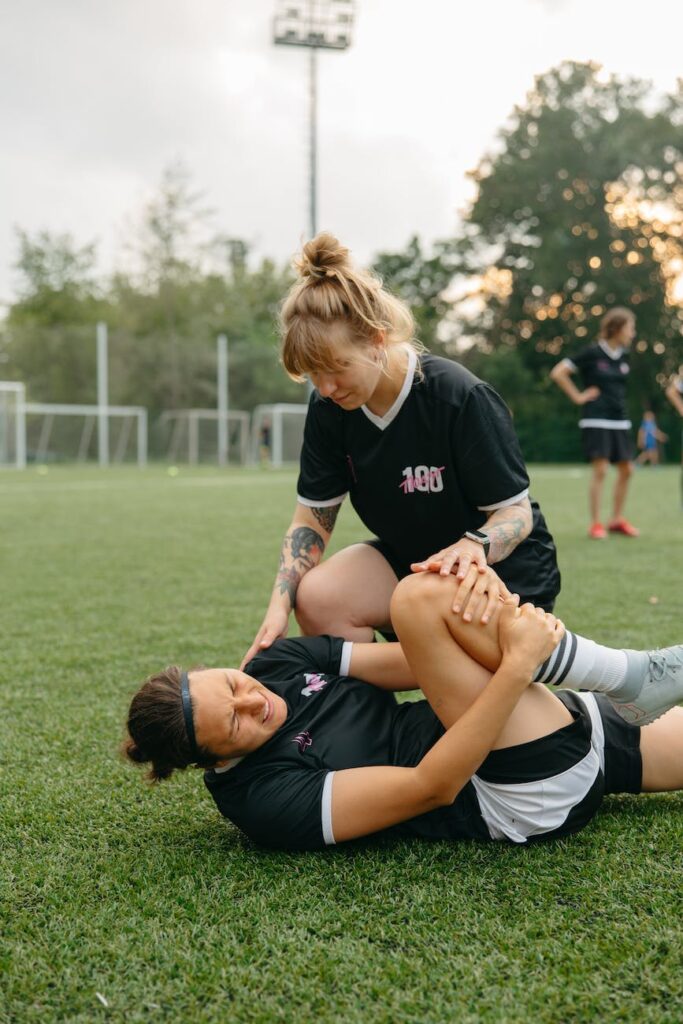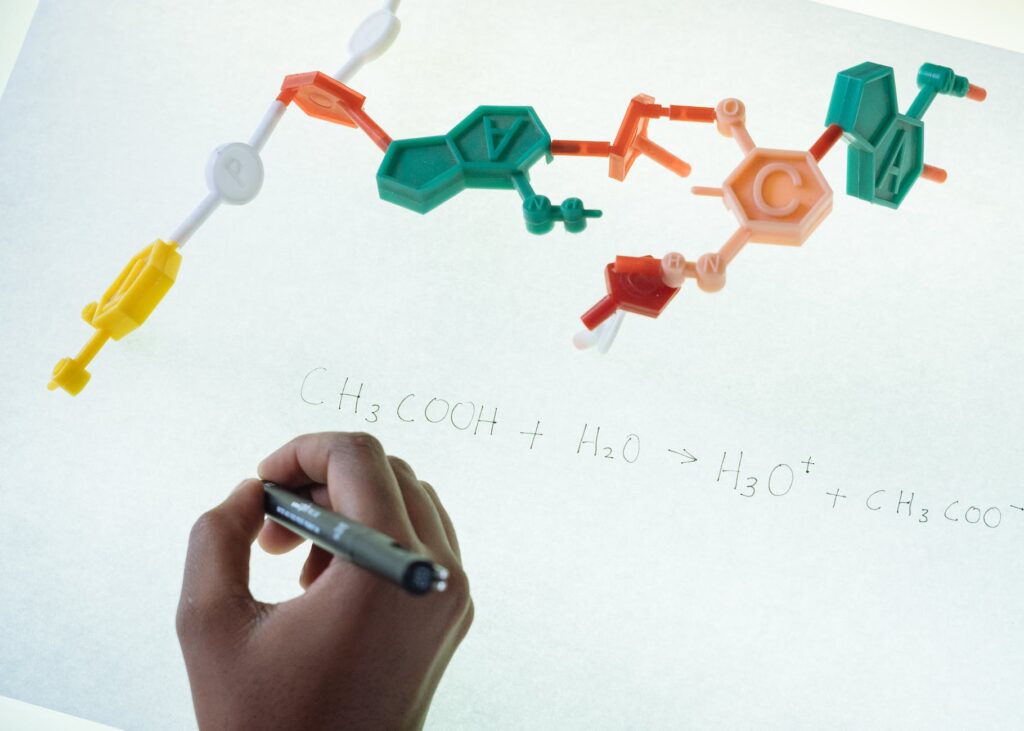Contents
Understanding Personal Injury Claims
Navigating the legal system following a personal injury can be complex and daunting. To make the road to justice smoother, it’s important to understand the basics of personal injury claims.
Personal Injury Claims Overview
Personal injury claims arise when an individual suffers harm from an accident or injury, and someone else might be legally responsible for that harm. The legal system allows an injured person to go to civil court and get a legal remedy for all losses stemming from an accident or other incident, via a personal injury claim. You can find more detailed information about the process in our guide on personal injury claims.
The cornerstone of a personal injury lawsuit is negligence, which refers to the failure of a person or entity to act with the level of care that someone of ordinary prudence would have exercised under the same circumstances. Before filing a lawsuit, proving negligence in the case is essential.
In personal injury cases, it’s crucial not to settle until the injured party has reached maximum medical improvement, indicating that their medical condition can no longer improve. This is key before accurately assessing the case, except in situations where there is insufficient insurance coverage and no possibility of recovering additional funds.
Role of Personal Injury Lawyers
Personal injury lawyers play a pivotal role in the pursuit of justice for victims of personal injuries. They provide legal services to those who have been injured, physically or psychologically, as a result of the negligence or wrongdoing of another person, company, government agency, or other entity.
Personal injury lawyers are versed in tort law, which includes civil wrongs and economic or non-economic damages to a person’s property, reputation, or rights. They help their clients secure compensation for losses incurred, such as loss of earning capacity, pain or suffering, reasonable medical expenses, emotional distress, loss of companionship, and legal costs.
One of their primary tasks involves working with medical experts to assess the extent of injuries, potential future medical needs, and overall impact on their client’s life. These expert opinions play a vital role in determining the value of a claim and are important in preparing a case for trial (Adam S. Kutner & Associates).
Choosing the right personal injury lawyer is a crucial step in the journey towards justice. Our guide to choosing the right personal injury lawyer provides insights on what to look for when searching for the best representation.
Understanding the intricacies of personal injury claims and the role of personal injury lawyers can empower individuals to make informed decisions about their health, legal rights, and financial recovery post-injury. The path to justice might be challenging, but with the right information and legal support, victims of personal injuries can confidently navigate the legal system.
Investigation of Personal Injury Claims
The investigation phase is a critical aspect of personal injury claims. It involves garnering necessary evidence, identifying witnesses, collecting medical records, and securing accident reports, photos, and videos to build a robust case. It’s during this phase that the groundwork is laid for establishing negligence and assessing claim value, both of which are pivotal to a successful outcome.
Importance of Prompt Medical Treatment
Prompt medical treatment after sustaining an injury is crucial in the personal injury claims process. It serves multiple purposes: ensuring a proper diagnosis, initiating suitable treatment, and establishing a clear link between the incident and resulting injuries. Medical records generated from immediate medical attention serve as significant evidence to support the claim. A delay in seeking medical care might inadvertently weaken the claim’s strength.
It’s also important not to settle until the injured party has reached maximum medical improvement. This point indicates that their medical condition can no longer improve and is key for accurately assessing the case, except in situations where there is insufficient insurance coverage and no possibility of recovering additional funds.
Evidence Collection and Analysis
Gathering evidence related to the scene of the accident, such as photographs, videos, and witness statements, provides valuable insights into liability and contributes to the investigation of the personal injury claim. This evidence helps reconstruct the events leading up to the injury, offering a detailed perspective of the incident (Wilson Kehoe Winingham).
Retaining all correspondence and documentation with insurance companies, healthcare providers, and other relevant parties is crucial in tracking the progression of the claim. This ensures that all necessary information is available for negotiation, settlement, or trial preparation. It’s also important to document lost wages and income, including pay stubs, tax records, and any relevant correspondence from employers. This documentation is crucial in determining the economic damages suffered by the claimant as a result of the injury, aiding in the preparation of a compensation claim.
In addition, securing expert opinions and testimonies, such as medical experts, accident reconstruction specialists, or vocational rehabilitation experts, can provide professional assessments that strengthen the case and support the claimant’s position in negotiations or during trial proceedings.
The investigation phase is integral to the success of personal injury claims. It sets the foundation for subsequent steps in the process, including trial preparation and proceedings, ultimately leading to a fair and just resolution.
Preparation for Personal Injury Claims
To navigate the complex process of personal injury claims, two critical steps are establishing negligence and accurately assessing the claim value. These components are key to ensuring the injured party is compensated fairly.
Establishing Negligence
The cornerstone of a personal injury lawsuit is negligence, which refers to the failure of a person or entity to act with a level of care that someone of ordinary prudence would have exercised under similar circumstances. Demonstrating negligence is essential for a successful claim, as it directly implicates the responsible party. This involves proving that the other party owed a duty of care, breached that duty, and caused the injury as a result.
The investigation stage is critical to this process, as it involves evidence collection, including witness statements, police reports, medical records, photographs, videos, and expert opinions. The evidence gathered helps substantiate the claim, demonstrating the negligence of the party at fault, and negating any efforts by the opposing party or their insurance company to deny or reduce the claim’s value.
It is highly advisable to consult a qualified personal injury lawyer during this stage. A skilled lawyer can conduct a thorough investigation, protect the injured party’s rights, and work towards achieving a fair and favorable outcome by establishing liability, causation, and damages in the claim.
Assessing Claim Value
Determining the value of a personal injury claim is another crucial step in the preparation process. This involves considering the extent and impact of the injury on the injured party’s life, including their physical health, emotional well-being, and financial status. The claim’s value hinges upon the actual damages incurred due to the injury — these can include medical expenses, lost wages, property damage, and pain and suffering.
In this process, the help of a personal injury lawyer can prove invaluable. The lawyer can analyze all information related to the case, including medical records and witness statements, to build a robust argument supporting the claim’s value. By doing so, they can help ensure that the injured party receives the rightful compensation for their losses and damages.
Understanding the steps involved in preparing a personal injury claim — from establishing negligence to assessing claim value — can empower individuals to navigate the legal process effectively. For further information, explore our resources on personal injury claims and consider seeking the guidance of a qualified legal professional.
Role of Expert Witnesses
In the process of preparing and presenting personal injury claims, expert witnesses often play a pivotal role. These professionals, with their specialized knowledge or experience, provide crucial testimony or evidence that can help establish liability, causation, or damages.
Types of Expert Witnesses
Expert witnesses used in personal injury cases can come from various fields. The choice of expert largely depends on the specifics of the claim and the aspects that need to be validated or clarified. Typical types of expert witnesses in personal injury cases include:
- Medical professionals: They can speak to the extent of the injury, the required treatment, and future implications.
- Accident reconstruction experts: These experts can help explain how the incident occurred based on the available evidence.
- Engineers: They can provide insight into product malfunctions or structural issues that may have contributed to the injury.
- Vocational specialists: These experts can assess how the injury affects the claimant’s ability to work.
- Economists: They can outline the financial impact of the injury, considering elements like lost wages, medical expenses, and potential future earning capacity.
Each of these experts can contribute unique insights that strengthen the case and provide a more comprehensive understanding of the circumstances and consequences of the injury.
Selecting and Preparing Expert Witnesses
Selecting the right expert witness is a critical step in the personal injury claims process. The expert’s testimony should be based on reliable methods and principles. Additionally, they should be able to explain their reasoning and methodology clearly. This clarity is essential to ensure that complex scientific, technical, or medical information is accessible and understandable to the judge, jury, and opposing counsel.
Once an expert witness is selected, thorough preparation for their testimony is critical. This typically involves a deep dive into the specifics of the case, ensuring they are well-versed in all relevant details. Anticipating and preparing for potential challenges during cross-examination can also ensure a more robust presentation of the expert’s findings.
The collaboration between the legal team and the expert witness can significantly impact the success of a personal injury case. By utilizing their specialized knowledge to clarify complex issues, expert witnesses can significantly bolster the evidence in support of a claim.
For more insights into the intricacies of personal injury claims, explore our comprehensive guides on personal injury claims investigation and preparation from inception to trial.
Pre-Trial Negotiations
Pre-trial negotiations are a critical stage in the process of personal injury claims. These discussions aim to reach a resolution that satisfies both parties without going to trial. This phase can yield various outcomes, all centering on an attempt to avoid further litigation and arrive at a fair settlement amount to compensate for injuries.
Settlement Discussions
Settlement discussions involve talks between the parties, often facilitated by their attorneys, to try to achieve a resolution without proceeding to trial. These negotiations can provide compensation faster and with less risk than going to trial, making them a preferred route for many.
The negotiation process in a personal injury lawsuit typically begins with a demand letter. This letter, usually drafted by the plaintiff’s attorney, details the incident, outlines the damages suffered, and states the compensation amount desired. From this point, the back-and-forth of negotiation ensues, with each party’s aim to reach a mutually agreeable settlement figure.
During this time, personal injury attorneys play a crucial role. They negotiate with insurance companies, opposing counsel, and other parties involved in the case to reach a favorable outcome for their client. Effective negotiation skills are critical in securing a fair settlement or a successful trial verdict (Adam S. Kutner & Associates).
For more information on settlements, refer to our article on personal injury settlement.
Overcoming Challenges in Negotiations
While negotiations aim to reach a resolution without going to trial, challenges may arise. One of the most common hurdles is agreeing on a fair settlement amount. This monetary figure should adequately compensate the injured party for their injuries.
It’s crucial not to settle until the injured party has reached their maximum medical improvement. This means that their medical condition is unlikely to improve further, allowing for an accurate assessment of the case. However, exceptions may occur in situations where there is insufficient insurance coverage and no possibility of recovering additional funds.
Another challenge can be proving negligence, which refers to the failure of a person or entity to act with the level of care that someone of ordinary prudence would have exercised under the same circumstances. Establishing negligence is essential before filing a lawsuit as it forms the cornerstone of a personal injury claim (Reinartz Law).
For those seeking to learn more about how to navigate challenges in negotiations, we recommend reading our article on how to win a personal injury case.
Trial Preparation and Proceedings
As we venture further into the journey of a personal injury claim, the potential for trial rises if pre-trial negotiations fail to yield a fair settlement. This stage involves rigorous preparation and processes, namely the discovery process, and presenting evidence and expert testimony.
Discovery Process
The discovery process forms a crucial part of trial preparation (Reinartz Law). This phase involves the exchange of all relevant facts, documents, and information between the plaintiff and the defendant. It allows both sides to gather necessary information to build their cases and can significantly influence the lawsuit’s course.
During discovery, both parties may collect evidence, interview witnesses, and analyze documents. This process can be extensive, but it is crucial in shaping the litigation strategy and preparing for trial. Understanding the discovery process is essential for individuals navigating their personal injury claims.
Presenting Evidence and Expert Testimony
If a settlement cannot be reached, personal injury attorneys must be prepared to take the case to trial. This involves thorough trial preparation, including witness preparation, evidence presentation, and legal argument development to advocate effectively for their client in court (Adam S. Kutner & Associates).
The trial process involves selecting a jury, presenting evidence, examining witnesses, and making closing arguments. The jury then deliberates and reaches a verdict. If the defendant is found liable, the verdict can result in a monetary award for the plaintiff.
The role of expert witnesses can be critical in a personal injury trial. Once an expert witness is selected, it is essential to prepare for their testimony thoroughly. This involves collaborating with the expert witness to ensure they are well-versed in the case details and to anticipate potential challenges during their testimony.
Effective coordination between attorneys, expert witnesses, and other legal professionals is essential from the inception to trial of a personal injury claim to ensure a successful outcome for the injured party.
As you navigate the complex road to justice, understanding the process of preparing and proceeding to trial is essential. From the discovery process to presenting evidence and expert testimony, each step is critical in pursuing your personal injury claims. For more state-specific information on personal injury claims, explore our resources on personal injury claims in California and personal injury claims in Texas.







